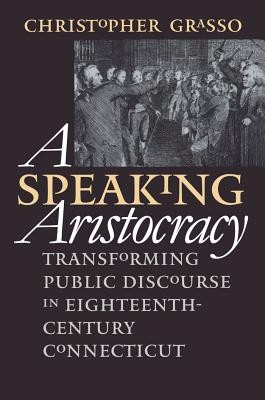
- We will send in 10–14 business days.
- Author: Christopher Grasso
- Publisher: Omohundro Institute and University of North Carolina Press
- ISBN-10: 0807847720
- ISBN-13: 9780807847725
- Format: 15.6 x 23.5 x 3.3 cm, minkšti viršeliai
- Language: English
- SAVE -10% with code: EXTRA
Reviews
Description
As cultural authority was reconstituted in the Revolutionary era, knowledge reconceived in the age of Enlightenment, and the means of communication radically altered by the proliferation of print, speakers and writers in eighteenth-century America began to describe themselves and their world in new ways. Drawing on hundreds of sermons, essays, speeches, letters, journals, plays, poems, and newspaper articles, Christopher Grasso explores how intellectuals, preachers, and polemicists transformed both the forms and the substance of public discussion in eighteenth-century Connecticut.
In New England through the first half of the century, only learned clergymen regularly addressed the public. After midcentury, however, newspapers, essays, and eventually lay orations introduced new rhetorical strategies to persuade or instruct an audience. With the rise of a print culture in the early Republic, the intellectual elite had to compete with other voices and address multiple audiences. By the end of the century, concludes Grasso, public discourse came to be understood not as the words of an authoritative few to the people but rather as a civic conversation of the people.
EXTRA 10 % discount with code: EXTRA
The promotion ends in 22d.12:32:03
The discount code is valid when purchasing from 10 €. Discounts do not stack.
- Author: Christopher Grasso
- Publisher: Omohundro Institute and University of North Carolina Press
- ISBN-10: 0807847720
- ISBN-13: 9780807847725
- Format: 15.6 x 23.5 x 3.3 cm, minkšti viršeliai
- Language: English English
As cultural authority was reconstituted in the Revolutionary era, knowledge reconceived in the age of Enlightenment, and the means of communication radically altered by the proliferation of print, speakers and writers in eighteenth-century America began to describe themselves and their world in new ways. Drawing on hundreds of sermons, essays, speeches, letters, journals, plays, poems, and newspaper articles, Christopher Grasso explores how intellectuals, preachers, and polemicists transformed both the forms and the substance of public discussion in eighteenth-century Connecticut.
In New England through the first half of the century, only learned clergymen regularly addressed the public. After midcentury, however, newspapers, essays, and eventually lay orations introduced new rhetorical strategies to persuade or instruct an audience. With the rise of a print culture in the early Republic, the intellectual elite had to compete with other voices and address multiple audiences. By the end of the century, concludes Grasso, public discourse came to be understood not as the words of an authoritative few to the people but rather as a civic conversation of the people.


Reviews